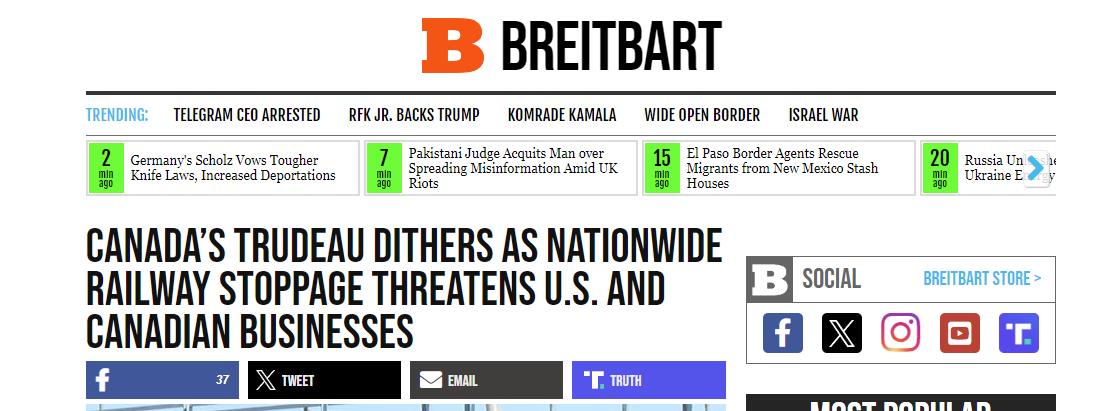
A nationwide rail stoppage in Canada is plunging North America into a perilous situation, highlighting the incompetence of leadership in managing labor disputes that threaten vital supply chains. The stakes have never been higher as nearly 9,300 workers from Canadian National Railway (CN) and Canadian Pacific Kansas City (CPKC) are locked out, throwing the industry into chaos.
The labor dispute at the heart of this crisis revolves around fundamental issues such as shift scheduling and fatigue provisions. It’s astonishing that leadership at these major railroads allowed tensions to escalate to this point, especially knowing that Canada relies heavily on rail for transportation. With approximately 75% of Canadian exports heading to the United States, this disruption threatens to halt shipments of essential goods like grains, beans, potash, coal, and timber.
The ramifications extend far beyond cargo. Tens of thousands of commuters in major cities like Toronto, Montreal, and Vancouver are now left stranded as their daily transit relies on rail lines owned by CPKC. The impact on ordinary citizens is palpable, underscoring the lack of foresight from leadership that should have prioritized a resolution long before it reached this critical juncture.
Moreover, safety concerns loom large as the Teamsters union emphasizes the need for proper rest and safety measures for rail workers. With trains transporting hazardous materials such as energy and chemicals, the absence of adequate safety protocols becomes a glaring oversight that could have dire consequences.
The failure of leadership to resolve this dispute threatens not only cross-border trade but also Canada’s standing as a reliable trading partner. Industry and trade organizations are sounding alarms about the immediate fallout, which could affect millions of Canadian jobs. Prime Minister Justin Trudeau has acknowledged the seriousness of the situation and has promised government intervention, yet specific details of this plan remain shrouded in uncertainty.
This crisis reveals the fragility of our supply chains and raises serious questions about the competence of those in charge. As we wait for a resolution, the implications of this rail stoppage serve as a stark reminder of the dire need for effective leadership and proactive measures to ensure the smooth operation of critical infrastructure. The clock is ticking, and the consequences of inaction are becoming increasingly alarming.